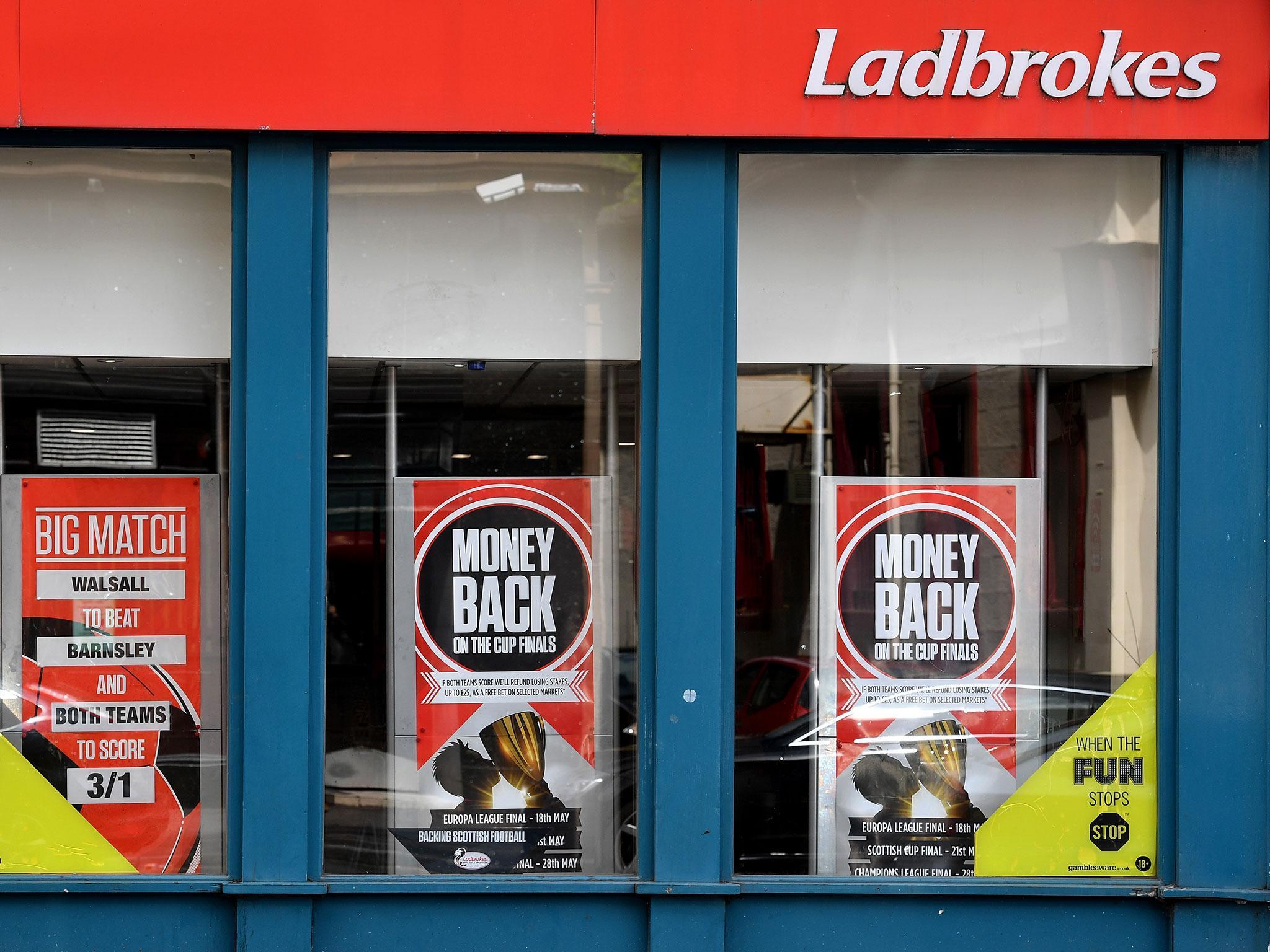Ladbrokes Coral would be wise to prepare for life without FOBTs
The threat to the industry from the Government’s review into the gaming machines overshadowed the group’s post-merger results

Your support helps us to tell the story
From reproductive rights to climate change to Big Tech, The Independent is on the ground when the story is developing. Whether it's investigating the financials of Elon Musk's pro-Trump PAC or producing our latest documentary, 'The A Word', which shines a light on the American women fighting for reproductive rights, we know how important it is to parse out the facts from the messaging.
At such a critical moment in US history, we need reporters on the ground. Your donation allows us to keep sending journalists to speak to both sides of the story.
The Independent is trusted by Americans across the entire political spectrum. And unlike many other quality news outlets, we choose not to lock Americans out of our reporting and analysis with paywalls. We believe quality journalism should be available to everyone, paid for by those who can afford it.
Your support makes all the difference.Ladbrokes Coral was a faller on the stock market as the company unveiled the first set of full year results after the completion of its mega-merger.
With the bookie announcing a thumping loss (more than £200m) thanks to costs incurred as a result of the £2.2bn deal that brought high street staples Ladbrokes and Coral together, perhaps it shouldn’t come as a surprise that investors refused to leave their stables.
And yet there was much to like about the results. Cheltenham was a winner, reversing the result in 2016 when punters made all the running. Ladbrokes’ book also benefited from some sporting surprises, such as Roger Federer winning the Australian Open tennis championship, and its online business is running a fine race.
The company also promised higher cost savings from the tie-up – upgrading its guidance from the rather conservative £65m initially pledged to a more shareholder-friendly £100m.
City analysts were happy enough with the numbers, especially the growth in online revenues, and pushed out some supportive comments, that referenced the shares’ low rating.
Yet the market was unmoved, perhaps because it wasn’t a loss that shouldn’t have come as a surprise that worried investors.
The shares of the operator of the biggest betting shop chain in the country will remain becalmed until the results of the Government’s triennial review into Fixed Odds Betting Terminals (FOBTs) are known.
The bleeping beasts that you’ll find in every betting shop in Britain are a big earner for the industry.
But when your most profitable product has become a whipping boy, not just for responsible gambling campaigners but for Tory, Lib Dem, and Labour MPs, for David Cameron’s former speech writer, the BBC, and the Daily Mail, then you have a problem.
The industry has lobbied long and hard in FOBTs’ favour, and even has one or two tame MPs in its corner, but its arguments aren’t getting heard.
No wonder investors are worried. They aren’t going to enter any bookmaker’s stalls until the picture has become clearer, regardless of how gaudy the promised synergies from the merger of Ladbrokes and Coral get.
The industry has argued that a lot of jobs will be lost if the machines are made subject to a crackdown, and that a lot of betting shops will be closed. I’ve no doubt that will happen, even if its claims are somewhat exaggerated.
However, the case against the machines is gathering strength. It is clear that they can cause serious problems for their users, even to someone with a relaxed and libertarian stance on gambling like me.
Despite its complaints, the industry might be better off in the long term without its favourite crutch. It would have to focus more on innovation and investment, improving its customers’ experience, perhaps forming more of a partnership with horse racing, with which it has been in a state of internecine warfare for years.
But I doubt the machines will be made subject to the sort of crackdown their opponents want to see or that the industry fears. At least not immediately. They provide too profitable a revenue stream for the Treasury and that might trump even the Daily Mail’s objections.
We will see restrictions, with perhaps lower staking limits adopted. But Ladbrokes shares could end up looking quite cheap if the Exchequer’s desire for revenue wins the day.
Nonetheless, it would be in the interests of its bosses to start thinking about a life without them. Even if the review is favourable to the industry this time around, it won’t kill off the controversy.
Join our commenting forum
Join thought-provoking conversations, follow other Independent readers and see their replies
Comments